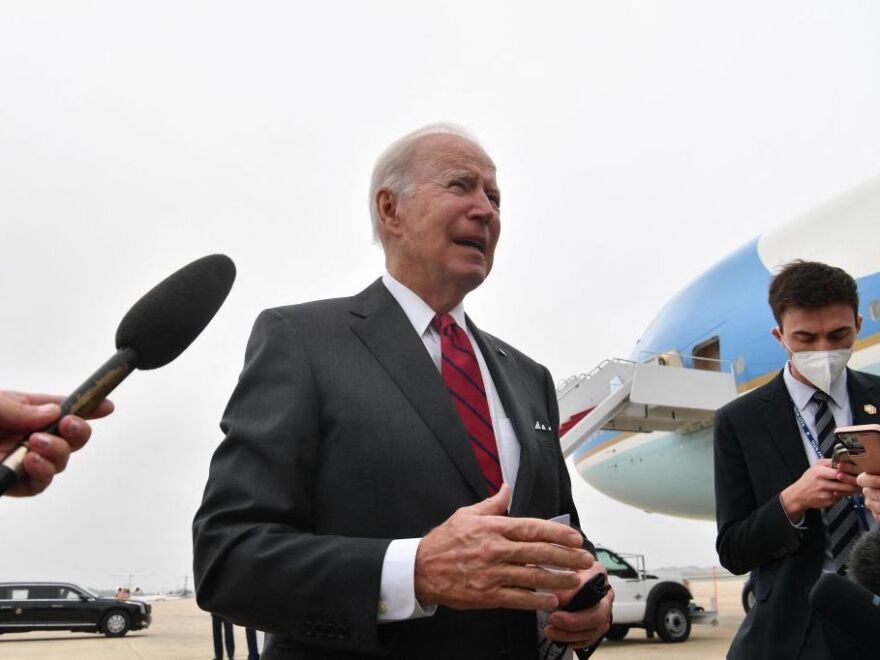President Biden responded to Chief Justice Roberts' confirmation of the draft Supreme Court opinion on abortion rights, calling it "quite a radical decision" if it ultimately is handed down and saying he hopes there are not enough votes for it in the end.
He made the remarks at Joint Base Andrews before departing on a trip to Alabama.
Biden said he believes the reasoning in the draft decision "would mean that every other decision related to the notion of privacy is thrown into question," adding that he believes there is a right to privacy in the Constitution and saying that is why he voted against a number of conservative Supreme Court nominees when he served in the U.S. Senate.
Biden said he's worried such a decision would threaten "a whole range of rights and the idea we're letting the states make those decision, localities, this would be a fundamental shift in what we've done."
Biden specifically said he was worried about challenges to contraception and same-sex marriage rights. In the draft decision, Justice Samuel Alito asserts that overturning Roe v. Wade wouldn't threaten other rights based in privacy, but also wrote that rights not enumerated in the Constitution must be rooted in U.S. history and tradition.
Biden again said he supports Congress codifying Roe into law, but declined to say whether he thinks Senate Democrats should end the legislative filibuster to do so.
He also appeared to suggest incorrectly that the draft opinion would fully block abortion rights in the U.S., "that no one can make the judgement to choose to abort a child based on a decision by the Supreme Court," even though it would leave the decision up to individual states.
Copyright 2022 NPR. To see more, visit https://www.npr.org.



